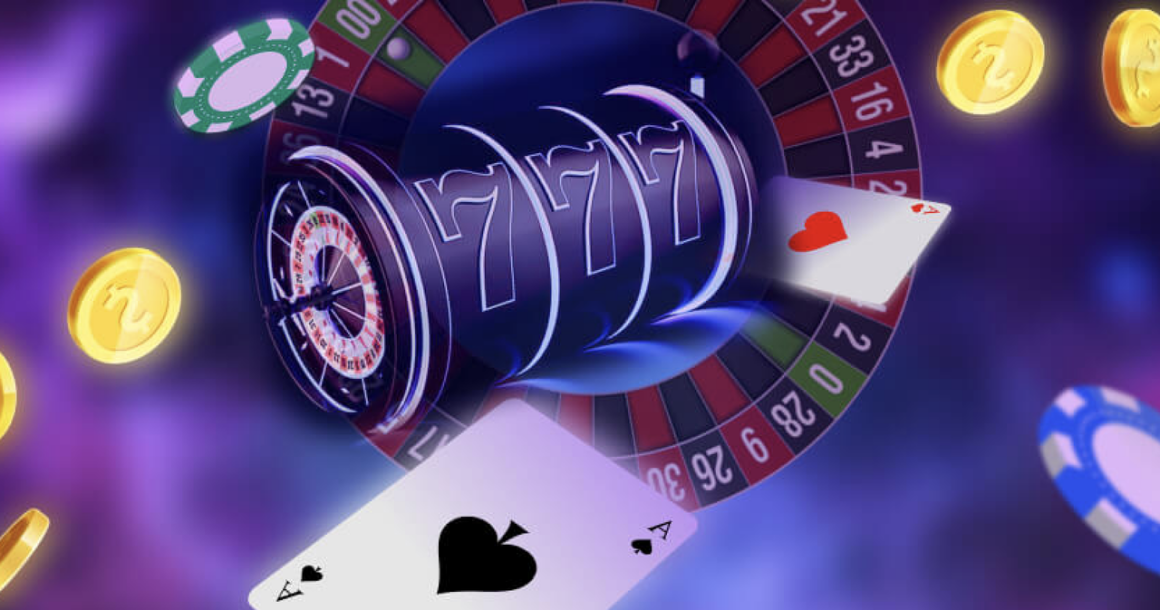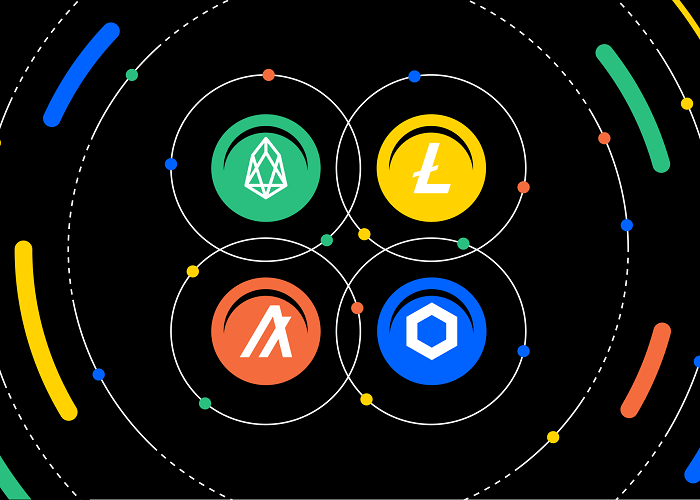[ad_1]
The integration of blockchain technology into the gambling industry marks a pivotal shift towards a more secure, transparent, and efficient framework for online gaming platforms. As this technology continues to evolve, it brings with it a host of opportunities that could redefine the gambling landscape.
However, alongside these promising advancements, there are significant challenges that need to be navigated.
The Promise of Blockchain in Gambling

The integration of blockchain technology into the gambling sector heralds a transformative era, particularly for online casinos, by embedding an unprecedented level of security and transparency into every facet of the gaming experience. At the heart of blockchain’s appeal is its decentralized ledger system.
Unlike traditional centralized databases that are susceptible to hacking and fraud, blockchain distributes its data across a network of computers. This dispersion ensures that each transaction, once recorded on the blockchain, becomes immutable — a feature that significantly deters fraudulent activities and unauthorized data manipulation.
For online casinos, where the stakes are inherently high due to the involvement of substantial financial transactions and the critical importance of fair game outcomes, blockchain’s tamper-proof nature offers a robust safeguard against the perennial threats of data breaches and fraud.
Beyond enhancing security, blockchain technology revolutionizes the operational dynamics of the gambling industry. Traditionally, online casinos have relied on third-party payment processors to handle transactions, a practice that often incurs significant fees and introduces delays in the processing of deposits and withdrawals.
Blockchain technology obviates the need for these intermediaries, facilitating direct transactions between the casino and its patrons. This direct transactional pathway not only reduces the costs associated with payment processing but also significantly accelerates transaction speeds, thereby enhancing the overall efficiency of the gaming experience. Players can enjoy quicker access to their funds, whether depositing or withdrawing, which in turn promotes a more seamless and satisfying gaming journey.
The advent of smart contracts — self-executing contracts with the terms of the agreement directly written into code — represents a pivotal advancement in how payouts are managed within online casinos. By automating the payout process, smart contracts eliminate the delays and human errors associated with traditional manual processing.
These contracts execute automatically when certain predefined conditions are met, such as a player winning a slot online game, ensuring that winnings are promptly and accurately disbursed. This level of efficiency and reliability in the payout process is not only a boon for players, who receive their winnings without undue delay but also enhances the operational efficiency of the casino by streamlining its financial transactions.
Opportunities Unleashed by Blockchain

One of the most notable opportunities presented by blockchain integration is the enhancement of fairness and trust between players and online gambling platforms. The technology’s ability to provide a ‘provably fair’ gaming environment ensures that neither the house nor the player can influence the outcome once a game has started. This level of transparency fosters trust and confidence among players, encouraging a more engaging and secure gaming experience.
Blockchain also offers increased privacy and anonymity in transactions, which is particularly appealing in a slot game. Players engaging in slot online games can benefit from the anonymity provided by cryptocurrency transactions, which do not require the sharing of personal financial information. This feature not only protects players’ privacy but also opens up online gambling to a broader audience, including those in jurisdictions with strict gambling regulations.
Challenges in Blockchain Adoption
The path to integrating blockchain technology within the online casino industry is fraught with several significant challenges that extend beyond its promising advantages. One of the most formidable obstacles is the regulatory landscape, which remains a complex and often unclear terrain for blockchain and cryptocurrency applications.
The legal frameworks governing these technologies are still in their infancy in many jurisdictions, leading to a climate of uncertainty. This ambiguity around regulations can act as a deterrent for online gambling platforms, which operate in a sector already heavily scrutinized by regulatory bodies.
The fear of inadvertently breaching uncharted legal territories or facing compliance issues can make the prospect of blockchain adoption daunting for many operators.
The inherent technical complexity of blockchain technology presents another significant hurdle. For many within the gambling industry—be it operators who run the platforms or players who engage with them—the intricacies of blockchain can be challenging to grasp.
This lack of understanding can hinder the adoption process, as stakeholders may be reluctant to embrace a technology they do not fully comprehend. To bridge this knowledge gap, there is a pressing need for comprehensive educational initiatives aimed at demystifying blockchain.
Another concern that looms large over the adoption of blockchain in online casinos is the issue of scalability. Blockchain networks, particularly those that first popularized the technology, have been criticized for their limited capacity to process transactions rapidly and at scale. Online gambling platforms, known for their high volume of financial transactions, require a robust infrastructure capable of handling such demand efficiently.
If blockchain networks cannot meet these requirements due to scalability constraints, it could significantly impede their practicality as a solution for online casinos. This challenge necessitates ongoing technological advancements and innovations within the blockchain to enhance its scalability, ensuring it can support the dynamic needs of the gambling industry.
Future Directions and Potential Solutions

Looking ahead, the future of blockchain in the gambling industry appears promising, with the potential to further enhance security, transparency, and player trust. However, overcoming the challenges of regulatory compliance, technical complexity, and scalability is crucial for its widespread adoption.
Collaborative efforts between gambling platforms, regulatory bodies, and technology providers will be key to navigating these hurdles.
As the industry continues to explore innovative solutions, such as the development of more scalable blockchain networks and the adoption of regulatory frameworks that support cryptocurrency use, blockchain’s integration into online gambling will likely continue to grow, reshaping the industry for the better.
The Bottom Line
Blockchain technology presents a revolutionary opportunity for the gambling industry, offering enhanced security, increased transparency, and improved efficiency. While the path to widespread adoption is fraught with challenges, the potential benefits are too significant to ignore.
By addressing the hurdles of regulatory uncertainty, technical complexity, and scalability, the gambling industry can fully leverage blockchain to create a more trustworthy and engaging experience for players. As we move forward, the continued exploration and integration of blockchain will undoubtedly play a crucial role in shaping the future of online gambling.
[ad_2]
Source link












